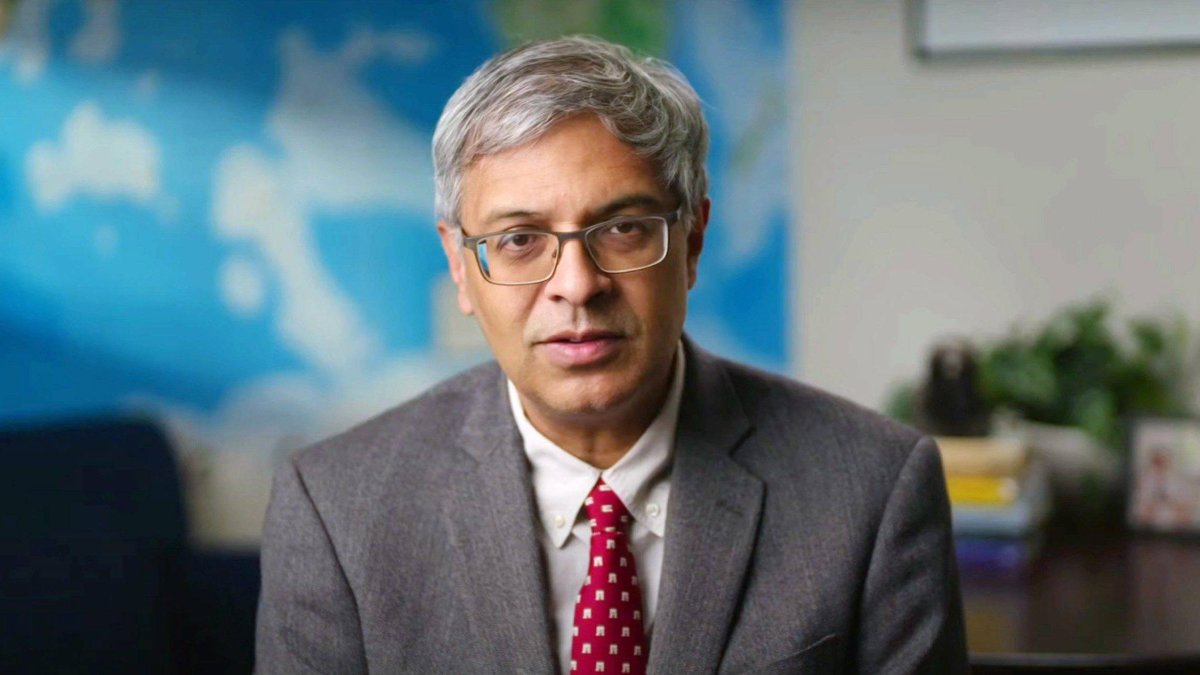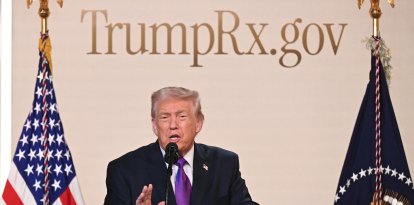Who is Jay Bhattacharya, critic of Anthony Fauci that Trump chose for the NIH?
The president-elect added the Stanford professor to his health team, where he will work alongside Robert Kennedy Jr.

Bhattacharya said he wanted to reestablish "trust" in the NIH.
Donald Trump continues to complete the staff accompanying him in his second administration. The president-elect made some high-profile appointments Tuesday night, including Jay Bhattacharya, who will be the next director of the National Institutes of Health (NIH). A native of India with doctorates in medicine and economics from Stanford University, he was also a strong critic of Anthony Fauci during the pandemic years.
"Together, Jay and RFK Jr. will return the NIH to a level of excellence in medical research by examining the underlying causes of and solutions to America's greatest health challenges, including our chronic disease crisis," Trump wrote on his Truth Social account, also referencing Kennedy's nomination to the Department of Health and Human Services.
As The Washington Post reported, Bhattacharya impressed Kennedy with his ideas for funding more innovative research and reducing the influence of some of the agency's senior career officials.
">I am honored and humbled by President @realDonaldTrump's nomination of me to be the next @NIH director. We will reform American scientific institutions so that they are worthy of trust again and will deploy the fruits of excellent science to make America healthy again! https://t.co/FrLmYznhfw
— Jay Bhattacharya (@DrJBhattacharya) November 27, 2024
"I am honored and humbled by President Donald Trump's nomination to be the next director of the NIH. We will reform America's scientific institutions to make them trustworthy again and deploy the fruits of excellent science to make America healthy again," Bhattacharya said on his X account.
Trump's nominee, who must get approval from the Senate, also called for reducing the degree of power of some of the 27 institutes and centers that make up the NIH.
Who is Jay Bhattacharya?
Bhattacharya shares many of RFK Jr.'s thoughts on the current state of science and medicine in the United States. Indeed, a few years ago, he said the following: "A relatively small group - almost a cartel - of very powerful scientific bureaucrats took over the entire apparatus of science, dominated the media, dominated the message to politicians."
He was also highly critical of Anthony Fauci during the Coronavirus pandemic, especially concerning confinement and mandatory vaccines. He co-authored the Great Barrington Declaration, which advocated a different approach to dealing with the pandemic by focusing on at-risk people and allowing the youngest and healthiest to return to normal life.
According to the text, the confinements were going to cause "devastating effects on public health in the short and long term," and maintaining them "until a vaccine is available will cause irreparable harm."
">Trump’s new NIH Director, Dr. Jay Bhattacharya: “A relatively small group — a cartel almost — of very powerful scientific bureaucrats took over the whole apparatus of science, dominated the media, dominated the message to politicians.”
— Benny Johnson (@bennyjohnson) November 27, 2024
pic.twitter.com/I2Hdr5fi5M
In early 2021, a year into the pandemic, he argued that the confinements were the "biggest public health mistake we have ever made" and argued that "the harm to people is catastrophic."
Fauci and Francis Collins, then director of the NIH, criticized Bhattacharya at the time for his proposals, which they considered "dangerous."
At the time, the now-Trump nominee spoke to Fox News and said that Fauci and Collins "created an illusion of scientific consensus around their ideas and marginalized anyone who disagreed with them, even though there was no scientific consensus." "It is a pattern of behavior that reflects an abuse of power by U.S. scientific bureaucrats at the top of our scientific bureaucracies," he added.
Bhattacharya's views ended up hurting him on social media because of the politics of the moment. According to the Twitter Files, in August 2021, he was placed on a "trending blacklist," thus preventing his posts from appearing in searches for trending topics.
As for his personal history, he was born in India in 1968 and later moved to the United States, where he studied at Stanford University. He graduated with doctorates in medicine and economics. He is currently a professor of medicine and economics at his alma mater, a senior fellow at the Economic Policy Research Institute, and the director of Stanford's Center for Demography and Economics of Health and Aging.
During his academic career, he specialized in the health and well-being of populations, with particular emphasis on economics, biomedical innovation, and the design and impact of government programs.
What does the NIH do?
According to their website, they are responsible for "the nation's medical and behavioral research. Its mission is to pursue fundamental knowledge about the nature and behavior of living systems and the application of that knowledge to improve health, lengthen life, and reduce disease and disability."
To this end, the agency has a budget of $50 billion.

























